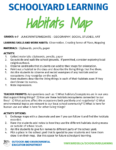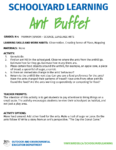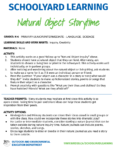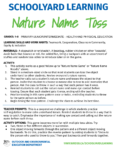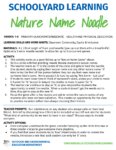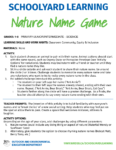Thank you to everyone who has supported Outdoor Learning at Blair!
The work that happens at Blair Outdoor Education Centre is made possible by the ongoing support of the Waterloo Region District School Board and by a number of other supporters. Volunteers are welcome, and can contribute their time by working on projects around the site or by helping with field trip programs. Please contact Nathan at 519 653-9855 if you wish to volunteer.
We wish to offer a huge thank you to TD Friends of the Environment Foundation which has provided 3 generous grants to support our projects since 2017. Check out the video to see how TD FEF has help out this year.
Harvesting Honey at Blair Outdoor Education Centre from Nathan Mantey on Vimeo.
What have we accomplished with the help of TD Friends of the Environment Foundation?
2017:
Approximately $10,000 for the installation of an outdoor classroom armour stone seating area.
2018:
$6,250 to support ecological restoration including planting 123 trees:
- 3 mature sugar maples
- 5 mature white spruce trees
- 25 eastern white cedar trees (four ft)
- 100 white spruce trees (small, 1 gallon pots) planted by students as part of their habitat restoration field trip learning experience
2019:
Approximately $13,000 to support revitalizing Indigenous land-based sustainability practices, including ecologically appropriate food production:
- Planted 71 food producing trees and shrubs including:
- Paw Paw (Asimina triloba) – A Carolinian forest fruit tree which is now rare in Ontario, but was once propagated by First Nations for its delicious fruit.
- Serviceberry (Amelanchier arborea, A. laevis, A. alnifolia) – Serviceberries or “Saskatoon berries” were and are an essential food plant for a variety of First Nations
- Hazelnut (Corylus americana) – A native nut tree of historic and contemporary importance
- Wild Plum (Prunus americana) – Native to Southern Ontario, this tree produces small fruits which ripen in late August.
- Hawthorn (Crataegus species) – The hawthorn fruits are edible and contain pectin and are thus useful for preserving and making jam.
- Witch Hazel (Hamamelis virginiana) – Extract of this native species has medicinal properties, including: Astringent, antioxidant, radiation-protective, anti-inflammatory
- Oak trees which will eventually produce edible acorns including: Bur Oak (Quercus macrocarpa), White Oak (Quercus alba), Red Oak (Quercus rubra) and Pin Oak (Quercus palustris)
- Purchased 3 FlowHive beehives, as well as all the necessary equipment, protective gear and bee colonies for us to operate our Grade 4 Bee Program, improve local pollination, and produce honey!
- Funding for consulting work with Dr. Andrew Judge and Kayanase- Restoring Mother Earth, allowing us to better build relationships with Indigenous community members.
We also wish to thank Waterloo Region School Food Gardens and Seeds of Diversity which provided funding ($1,500) to build four raised garden beds, which became the centre of the Indigenous Food Garden at Blair. A big thank you to neighbours and community members who helped to install the garden or plant trees at our 2019 Earth Day Reconciliation Tree Planting Event. We also thank the WRDSB Indigenous Learning team for sponsoring this event, allowing us to plant 206 trees (166 Eastern White Cedar, 40 Oaks) on April 22nd, 2019.
Categories: Blair

